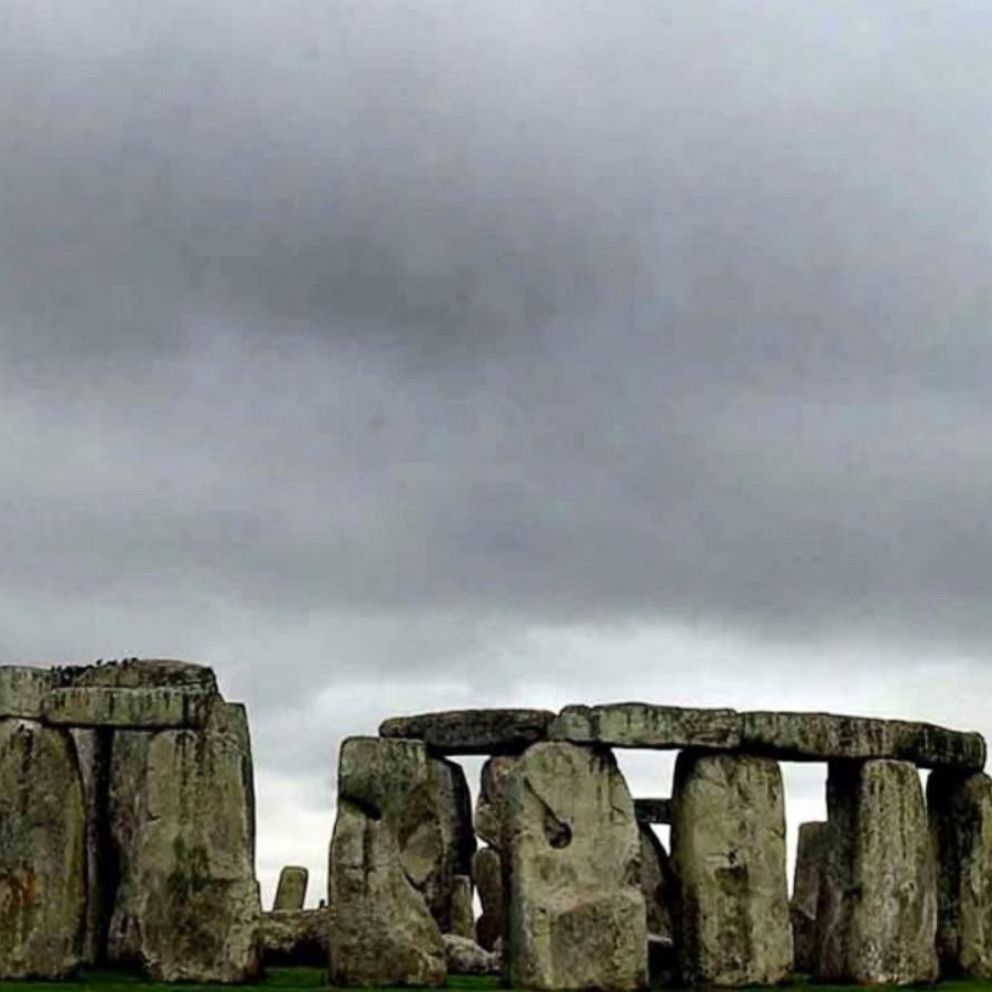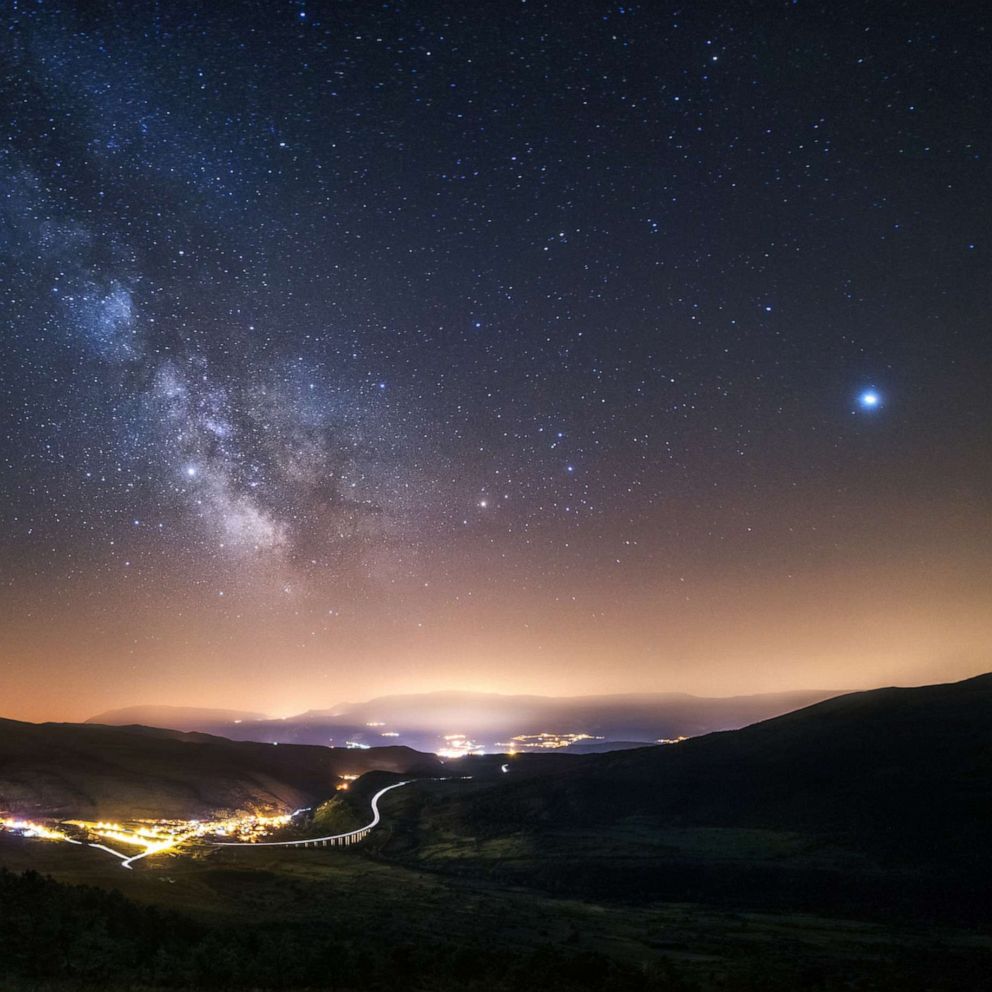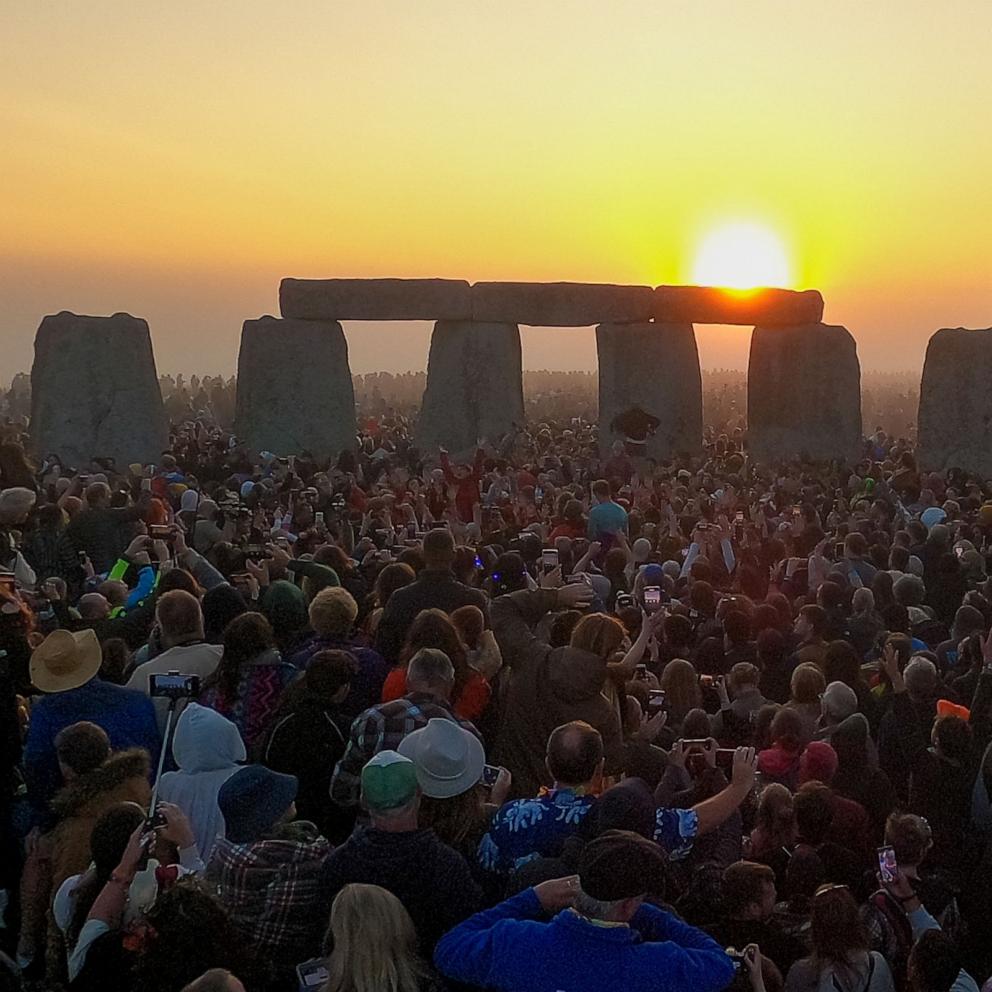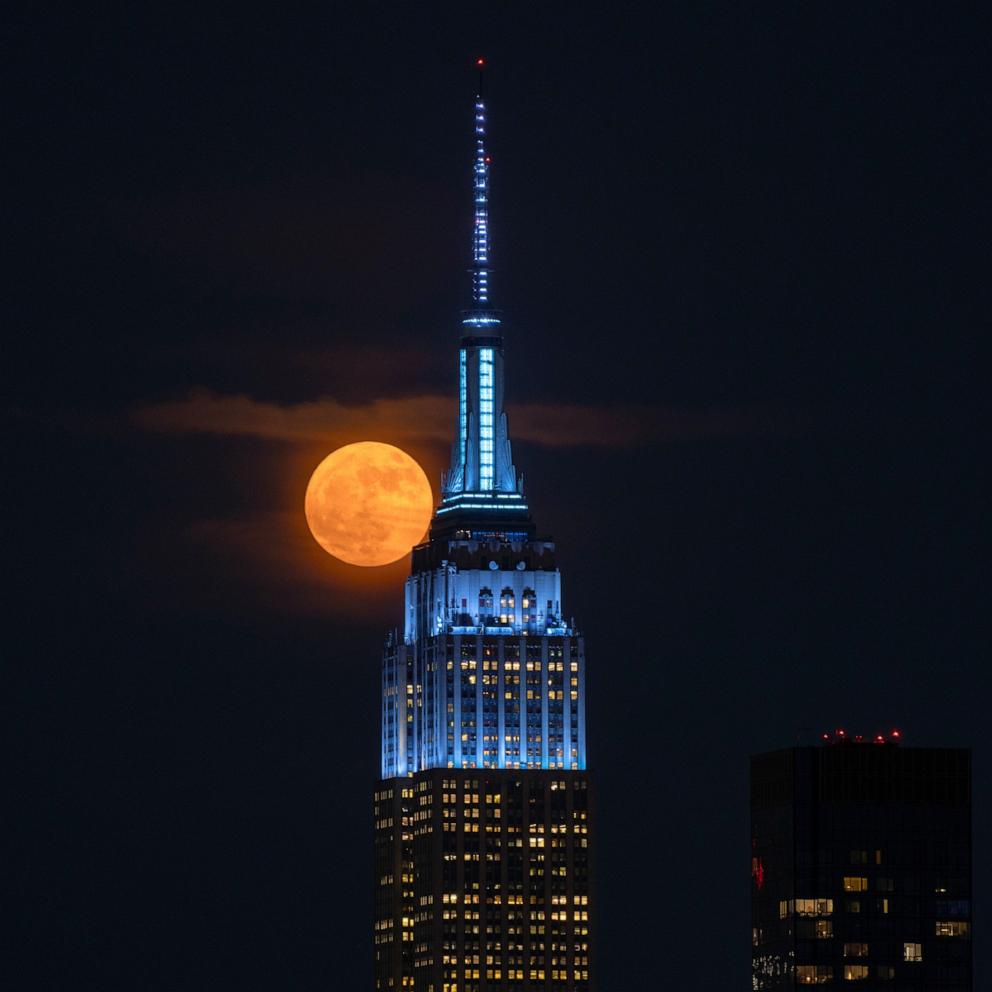Summer solstice 2025: What to know as 1st day of summer arrives
Get ready for sun-soaked days and warmer weather, as the summer solstice 2025 is just around the corner.
This year, the summer solstice falls on Friday, June 20.
The astronomical event marks the official start of summer and the beginning of an extended period of daylight in the northern hemisphere as we transition out of the darker, colder months.

The solstice occurs twice a year when one of Earth's poles reaches its maximum tilt toward the sun, according to NASA.
The word "solstice" comes from the Latin solstitium, meaning "sun stands still," referring to the moment when the sun's apparent path pauses before reversing direction, according to Royal Museums Greenwich.
Across the globe, cultures have long celebrated the summer solstice with unique traditions from watching the sunrise align with Stonehenge in England to dancing around maypoles in Sweden and lighting bonfires in Norway.
Here's everything you need to know about the 2025 summer solstice.
When is the 2025 summer solstice?
The 2025 summer solstice falls on Friday, June 20, at 10:42 p.m. ET, according to NASA and the Old Farmer's Almanac.
This marks the longest day of the year in the northern hemisphere, when the Earth's tilt positions it closest to the Sun.
"The situation is reversed for the southern hemisphere, where it's the shortest day of the year," NASA states.
What is the summer solstice?

The summer solstice occurs at the point in Earth's orbit when the sun shines most directly on the northern hemisphere, according to NASA.
"Astronomers consider this the beginning of the Summer in the northern hemisphere," NASA states.
While it marks the start of summer in the north, the event marks the winter solstice in the southern hemisphere, where sunlight is at its lowest angle.
When is the longest day of the year in 2025?
The longest day of the year in 2025 will occur on Friday, June 20, for those in the northern hemisphere.
On this day, the sun reaches its highest point in the sky, resulting in the most daylight hours of the year.
NASA notes this happens when "the sun is directly over the Tropic of Cancer," located at 23.5 degrees north latitude.
Is the summer solstice the first day of summer?
Yes, astronomers recognize the summer solstice as the official first day of summer in the northern hemisphere, according to NASA.
The National Centers for Environmental Information explains that solstices and equinoxes mark the start of the astronomical seasons. These events occur when the sun reaches its most extreme position relative to the equator, either directly overhead or crossing it.
Meteorological seasons split the year into three-month groups based on temperature cycles and "are more closely tied to our monthly civil calendar than the astronomical seasons are," according to the agency.
Does the summer solstice always fall on the same day?
According to the Old Farmer's Almanac, the summer solstice doesn't always occur on the same date. It can fall on June 20, 21, or 22, depending on the year.
This is because the timing of the solstice isn't tied to a fixed calendar date. Instead, it's determined by the exact moment the sun reaches its northernmost point from the celestial equator during Earth's orbit.
What happens on the summer solstice?
On the day of the summer solstice, the sun reaches its highest point in the sky at noon, and its position changes very little for several days before and after, according to the National Weather Service.
This results in the longest day of the year and the shortest night.
While the term "longest day" doesn't refer to the number of hours in the day, it does mean the day with the most sunlight.







